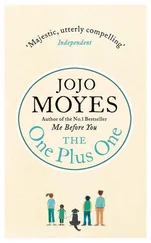‘I’ll see you out, Sister.’
‘You take care now, Sister Mackenzie.’
‘Give the boys at home our best.’
‘Tell my missus to warm up my side of the bed.’ This was accompanied by ribald laughter.
Audrey, lifted briefly from her strange, low-level anxiety, observed this with satisfaction. Several weeks ago, some of the men could not have told her their wife’s name.
The two women walked slowly towards the ship, only the sound of their starched uniforms and the soft thud of their shoes on the sand breaking the silence as the sounds of the party faded. They walked the length of the perimeter fence, past the now-deserted rows of hospital tents, the corrugated-iron staff quarters, cookhouse and latrines. They nodded at the security guard on the gate, who saluted, and then, free of the camp, they walked the length of the deserted road to the end of the peninsula, footsteps echoing on the Tarmac, to where the hospital ship sat in the glinting water, illuminated by the moon.
They reached the checkpoint and stopped. Sister Mackenzie stared at the ship, and Audrey Marshall wondered what was going through the girl’s head, suspecting she knew the answer. ‘Not long to Sydney, is it?’ she said, when the silence became awkward.
‘No. Not long at all.’
There were too many inappropriate questions, too many trite answers. Audrey fought the urge to place an arm round the girl, wishing she could better express some of what she felt. ‘You’re doing the right thing, Frances,’ she said, eventually. ‘I’d do the same if I were you.’
The girl looked at her, back straight, eyes level. She had always been guarded, Audrey thought, but in the past weeks her expression had closed over as completely as if it had been cast in marble. ‘Don’t pay any attention to the others,’ she said suddenly. ‘They’re probably just jealous.’
They both knew that wasn’t it.
‘Fresh start, eh?’ she said, holding out her hand.
‘Fresh start.’ Sister Mackenzie shook it firmly. Her hand was cool, despite the heat. Her expression was unreadable. ‘Thank you.’
‘You take care now.’ Audrey was not a woman given to sentiment or high emotion. As the girl turned towards the ship, she nodded, brushing off her slacks and went back towards the camp.
PART TWO
4
Sydney’s most stirring show last week was the departure for England of HMS Victorious with 700 Australian wives of British servicemen aboard. Hours before the ship sailed the road outside the wharf was dense with relatives and friends . . . Mostly the brides were amazingly young.’
The Bulletin , 10 July 1946
Embarkation
Afterwards, she realised she wasn’t sure what she had expected; perhaps some orderly queue of women, suitcases in hand, making their way past the captain. With a shake of his hand and some discreet, perhaps tearful goodbyes, they would walk up the gangplank on to their big white ship. She would wave until her family were out of sight, call a few last-minute instructions about the feeding of the mare, the whereabouts of Mum’s good boots for Letty, then finally her love and goodbyes, her voice echoing across the harbour as the ship slowly pulled out to sea. She would be brave, keep her eyes trained on what she was going to, not what she was leaving behind.
What she had not imagined was this: the traffic jams all the way to Sydney Harbour, cars snaking in bad-tempered queues, bumper to bumper under the grey city skies, the crowds of people thronging the entrance to the docks, yelling and waving greetings to people too far away or just too deafened by the noise to answer. The brass band, ice-cream sellers, lost children. The jostling of a million elbows and stumbling feet, all trying to force their way to the quayside. The hysteria of innumerable young women, clutching parents, bawling grief-stricken or giddy with excitement as they attempted to haul baggage and food parcels through the thick crowd towards the huge grey vessel. The air of nervous anticipation, hanging like sea mist over the docks.
‘Bloody hell! We’ll never make it at this rate.’ Murray Donleavy sat behind the wheel of the pickup truck, smoking yet another cigarette, his freckled face set.
‘Be fine, Dad.’ Margaret laid a hand on his arm.
‘Man’s driving like an idiot. Look, he’s so busy chinwagging he hasn’t even noticed they’re moving. Get up there.’ He slammed his hand on the horn, causing the car in front to judder and stall.
‘Dad, he’s not one of your cows, for God’s sake. Look, it’s fine. We’ll be fine. If it gets any worse I can always get out and walk.’
‘She can bat them out the way with her bloody stomach.’ Daniel, behind her, had been increasingly rude about her ‘lump’, as he called it.
‘I’ll bat you out of the way, if you don’t mind your language. With the back of my hand.’ Margaret leant forward to stroke the terrier that sat in the footwell between her feet. Every so often, Maude Gonne’s nose would twitch at the unfamiliar scents that came in through the window: sea salt, traffic fumes, popcorn and diesel. She was an old dog, half-blind, her nose speckled with salt-and-pepper flecks of grey, and had been Margaret’s tenth birthday gift from her mother because, unlike her brothers, she wasn’t going to get a gun.
She leant down and pulled her hand basket on to her knee, then checked for the fourteenth time that her papers were in order.
Her father glanced over. ‘Looks like you’ve got bugger all in that basket. I thought Letty put a few sandwiches in for you.’
‘I must have taken them out when I was fussing with it at home. Sorry – too much on my mind this morning.’
‘Let’s hope they feed you on board.’
‘Course they’ll feed us, Dad. Especially me.’
‘They’ll need another ship just to carry the food she needs.’
‘Daniel!’
‘Dad, it’s okay.’ Her brother’s fierce features were half hidden behind his overgrown fringe. He seemed to find it increasingly difficult to look at her. She thought about reaching out a hand to say she understood, that she wouldn’t hold this uncharacteristic meanness against him, but she suspected he would repel that too – and now that they were near to saying goodbye, she wasn’t sure that she was robust enough to take it.
Letty hadn’t wanted him to come, had seen the boy’s sullenness as a bad omen for the voyage. ‘You don’t want a face like that to be the last thing you see of your family,’ she said, as Daniel slammed the door for the umpteenth time.
‘He’s all right,’ Margaret had replied.
Letty had shaken her head and redoubled her efforts on the food parcel. Twenty-five pounds they were allowed; and Letty, afraid that Joe’s mother might not think her new Australian family hospitable enough, had weighed and reweighed until she had utilised every last bit of the allowance.
Margaret’s dowry thus contained, among other things, Letty’s best tinned fruitcake, a bottle of sherry, tinned salmon, beef and asparagus, and a box of jellied fancies that she’d put by with the coupons on a visit to Hordern Brothers. She had wanted to pack a dozen eggs, but Margaret had pointed out that even if they survived the car journey to Sydney, after six weeks on board ship they would be less a gift than a health hazard. ‘It’s not like the Poms are the only ones who’ve got rationing,’ Colm had complained. He was rather partial to Letty’s fruitcake.
‘The nicer we treat them, the better they’re likely to treat Maggie,’ Letty had said crossly. Then after staring into the middle distance, she had fled the kitchen, dabbing her eyes with a tea-towel.
She no longer bothered to set her hair.
‘Got your papers?’ They had reached the gates of Woolloomooloo wharf. In his new uniform the officer was stiff with the importance of the day. He leant through the window of the truck, and Margaret pulled her well-thumbed documents out of her basket and handed them to him.
Читать дальше












